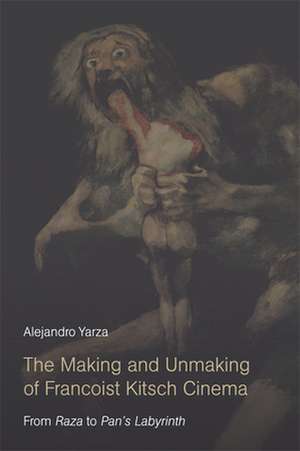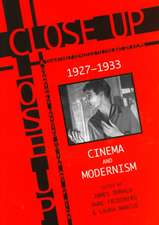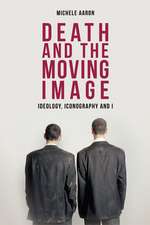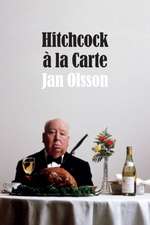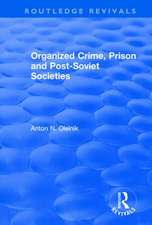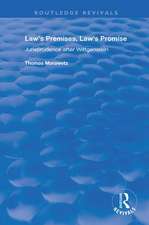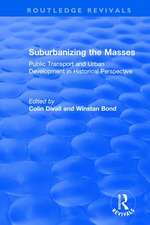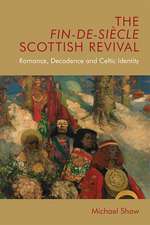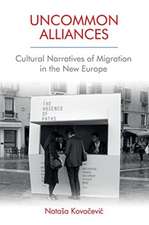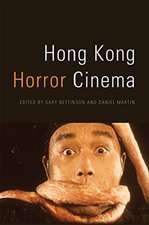The Making and Unmaking of Francoist Kitsch Cinema
Autor Alejandro Yarzaen Limba Engleză Hardback – 15 dec 2017
This book engages with the making and unmaking of Francoist kitsch aesthetics through the analysis of Spanish cinema. It examines five highly influential Francoist films produced from 1938 until 1964 and three later films by critically acclaimed directors Luis Buuel, Guillermo del Toro, and Alex de la Iglesia that attempt to undermine Francoist aesthetics by re-imagining its visual and narrative clichs.
| Toate formatele și edițiile | Preț | Express |
|---|---|---|
| Paperback (1) | 193.62 lei 3-5 săpt. | |
| EDINBURGH UNIVERSITY PRESS – 7 aug 2019 | 193.62 lei 3-5 săpt. | |
| Hardback (1) | 584.63 lei 3-5 săpt. | |
| EDINBURGH UNIVERSITY PRESS – 15 dec 2017 | 584.63 lei 3-5 săpt. |
Preț: 584.63 lei
Preț vechi: 712.15 lei
-18% Nou
Puncte Express: 877
Preț estimativ în valută:
111.90€ • 121.59$ • 94.06£
111.90€ • 121.59$ • 94.06£
Carte disponibilă
Livrare economică 31 martie-14 aprilie
Preluare comenzi: 021 569.72.76
Specificații
ISBN-13: 9780748699247
ISBN-10: 0748699244
Pagini: 336
Dimensiuni: 163 x 239 x 25 mm
Greutate: 0.59 kg
Editura: EDINBURGH UNIVERSITY PRESS
ISBN-10: 0748699244
Pagini: 336
Dimensiuni: 163 x 239 x 25 mm
Greutate: 0.59 kg
Editura: EDINBURGH UNIVERSITY PRESS
Descriere
This book examines five highly influential Francoist films produced from 1938 until 1964 and three later films by critically acclaimed directors Luis Bunuel, Guillermo del Toro, and Alex de la Iglesia that attempt to undermine Francoist aesthetics by re-imagining its visual and narrative cliches.
